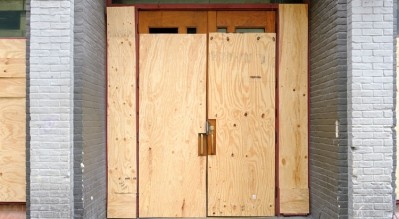Planning reforms leave hospitality businesses 'fearing the worst'

The group, which represents 1,200 independent bars, clubs and live music venues across the UK, says it is concerned that cultural institutions such as nightclubs could be lost as a result of the new planning rules, which were announced today (31 March).
According to the Government, allowing unused commercial buildings to be changed into homes will encourage more people to live near local high streets and come to the area for work and leisure.
The new homes will be delivered through a simpler ‘prior approval’ process instead of a full planning application, which will include considering impacts of noise from the commercial premises, provision of adequate natural light to all habitable rooms, and - in conservation areas only - consideration of the impact of the loss of the ground floor commercial, business and service use.
There will also be a vacancy requirement that will ensure the building changing use has been vacant for three months before the date of the application, which is intended 'to protect successful businesses in these premises'.
"We are creating the most small business friendly planning system in the world to provide the flexibility needed for high streets to bounce back from the pandemic," says the Government's Housing Secretary Robert Jenrick.
"By diversifying our town and city centres and encouraging the conversion of unused shops into cafes, restaurants or even new homes, we can help the high street to adapt and thrive for the future."
The NTIA argues that the reforms could incline landlords still yet to agree a solution with their tenant to the mounting commercial rent debt caused by the pandemic to consider action to take back their property once the Lease Forfeiture Moratorium expires in June, in order to then sell it off to a housing developer.
"While the Government's narrative around planning reform suggests the positive impact on high streets and town centres, businesses who have been hardest hit during the pandemic fear the worst, as rent debt mounts and commercial landlords consider action to take back property, following the end of the Forfeiture Moratorium at the end of June," says Michael Kill, CEO of the NTIA.
Jenrick recently confirmed another three-month extension of the Moratorium, which prevents landlords from repossessing commercial premises if businesses are unable to pay their rent as a result of the Coronavirus pandemic, as a result of the ongoing lockdown restrictions.
At the same time he also launched a call for evidence to help the Government monitor the overall progress of commercial rent negotiations.
It is understood that close to £3bn in unsettled rent will have accumulated within hospitality by the end of March.

































